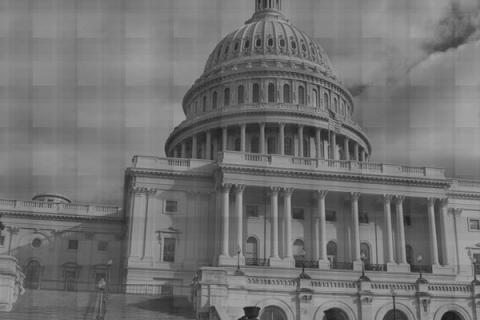Last week Republican presidential candidate Mitt Romney embarked on a European tour. Visiting the United Kingdom to mark the beginning of the Olympics, the former Massachusetts governor made a well-documented gaffe by noting that London's preparation for the games was "disconcerting."
Although no one is likely to mistake him for a political pundit, when sprinter Carl Lewis said, "Every Olympics is ready, I don't care what he [Romney] said. I swear, sometimes I think some Americans shouldn't leave the country. . . . stay home if you don't know what to say," he struck a nerve with one of the fatal flaws of the Romney campaign: Mitt Romney is utterly unprepared for the presidency.
Romney followed up by telling the press about a meeting with MI6, the UK's foreign intelligence service, where they discussed the situation in Syria and "the hope for a more peaceful future for that country." But according to the English-language German newspaper Der Spiegel, the meeting was supposed to remain secret as part of an earlier agreement, making an embarrassment of the whole affair.
Romney also held a fundraiser Thursday night in London that drew donors from Goldman Sachs to J. P. Morgan. Also among the donors were bankers from Barclays, the firm at the center of the Libor interest-rate fixing scandal.
Some of these trip-ups aren't likely to last long: Romney's comment about London's preparedness may have simply been an unusually candid remark from a candidate who happens to have some experience planning the Olympics. But the rest of the trip is a good look into what a potential Romney Administration portends.
Romney already suffers from an image of being rich and out-of-touch. Although this claim can be made of almost anyone running for the modern presidency, Romney is hardly the first wealthy man to seek the Oval Office. But while he may be touting himself as an economic aficionado because of his success at Bain Capital, Romney is overwhelmingly supported by the biggest fish in the financial sector. As one report during the primary revealed:
"[Romney's] top three contributors this election cycle are Goldman Sachs, Credit Suisse Group, and Morgan Stanley. In addition to these three, four more of Mitt Romney's top ten contributors are also 'too-big-to-fail' banks and giant international financial corporations, including: HIG capital at #4, Barclay's at #5, Bank of America at #7, and J. P. Morgan Chase & Co. at #10."
If Romney has a reputation as a Wall Street fat cat who is more interested in the bottom line than broad economic growth there is little that a report like this or his London fundraiser will do to dispel the image. While he is gaining momentum due to a poor economy and his perceived economic prowess, Romney is supported by the richest, best-connected, and least-transparent financial corporations in the world.
Internationally, however, Romney is actually more well-liked than President Obama. This is true in Egypt as a poll before their June presidential election indicated. However, much of the goodwill directed toward Romney is merely a reaction against Obama's policies.
But just as the bloom is falling off the Obama rose internationally, because the Democratic president has shown himself to be a defender of the status quo, so too will Romney's good standing erode as it becomes known that he is likely to return to the more naked aggression seen under the Bush administration.
The immediate fall-out from revealing the MI6 meeting may be minimal in America, but it betrays Romney as an amateurish potential commander-in-chief who can't remain silent about a sensitive intelligence meeting. This already from a candidate who frequently talks about foreign policy, but is woefully misinformed.
IVN editor Kymberly Bays pointed out on the Pangea blog that Romney foreign policy adviser Richard Williamson referred to Russia as the Soviet Union. It may have been an honest slip-up but it still conveyed the aggressive stance Romney has taken in which a line is drawn between the United States and Russia, just as it was between the United States and the Soviet Union.
The European trip may end up damaging Romney. In contrast to Obama's own European trip in 2008, during which the Democratic candidate famously referred to himself as a "citizen of the world" and generally incurred international goodwill, Romney has knocked over the furniture to the point that a trending Twitter hashtag was "Romneyshambles" and was described anonymously in the Daily Mail as "worse than Sarah Palin."
The reference to the previous Republican vice presidential candidate is devastating, but probably more accurate than it seems. When Romney is not protecting the big monied interests he is spouting the latest partisan talking point. Put together, it makes the differences between Romney and his recent Republican predecessors all the more negligible.

